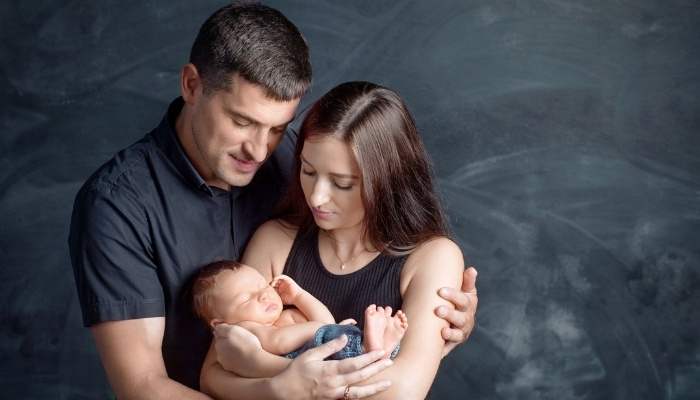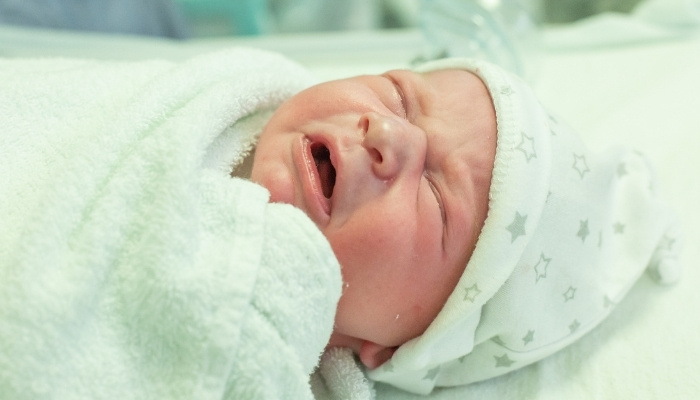While anticipating the arrival of your little one during pregnancy, the actual moment of birth can sometimes bring unexpected emotions. Upon seeing the innocent face of your baby, you may feel a sense of disappointment, despite your excitement.
Is it normal to not think your baby is cute? Yes, it is normal to think your baby isn’t cute. It’s important to remember that a baby’s appearance will continue to change very quickly over time as they get older. You may even notice some changes on a weekly basis. Over time, you will likely appreciate what you see much more.
We hope this makes you feel a little better. Keep reading so you can better understand why you’re not alone, what to expect, and more.
Do All Parents Think Their Baby Is Cute?
If you think you’re alone in not being in love with the way your baby looks, we are here to reassure you that you are, in fact, not alone. Not at all.
We’ll explore this in more depth in the next section.
Many Parents Don’t Consider Their Newborn to Be Cute
As Sarah Garone writes for verywellfamily.com, “…if you’re wondering if it’s normal to feel your newborn isn’t a candidate for baby modeling, the answer is yes!” A lot of it has to do with features that are temporary.
Research conducted through surveys has revealed many people don’t think babies are incredibly cute immediately. (Like we said, you’re not alone.) So do things change? And when?
We have the answer.
By 3-6 Months, Most Parents Do Think Their Baby Is Cute
Those same surveys show things begin to change within three to six months.
As we mentioned above, your newborn’s features will continually shift over time, especially during the first year. Within the first three to six months, many more parents begin to feel their baby is much cuter than they were on Day 1.
But why? It might be coded into us. Scientists have looked into this and have some thoughts…
The Science Behind These Feelings
Yes, there’s research to prove your feelings are valid. In fact, it may be wired into your DNA.
A study in Evolution and Human Behavior involved researchers asking 142 adults how willing they would be to adopt children based on their individual perceptions of happiness, health, and cuteness.
Think the newborns won?
Nope. The 6-month-olds did, followed by the 3-months-olds. The newborns failed the cuteness portion.
Researchers speculate that the reason is a delay in full bonding from parents until babies are a few months into their lives, as newborns aren’t as equipped to survive diseases.
In other words, we might be hardwired to find older babies and toddlers cuter than newborns so we’ll divert resources to the offspring with the greater chances of survival.
Why Newborns Look Weird
Remember, your baby was confined in your uterus for a long time, and it will take a few days for any lumps or unusual head shape to settle.
There’s action you can take for a head shape that’s a bit uneven, including tummy time and other positioning. Talk to your physician for specific advice.
Another factor is that newborns haven’t yet put on much weight. Babies gain pounds quickly, which can make them fill out and give them a chubbier, more adorable appearance.
Expect your baby to double his or her birth weight within six months. Skin tone also changes quickly after birth as melanin begins to do its job; eye color is also not yet settled at birth.

What Makes a Baby Cute?
Ever heard the word “kindchenschema”? The English term is “baby schema.” According to DiscoverMagazine.com:
“Infants of many mammal species have a suite of features, such as a large head, large eyes and a small nose, that prompt a caregiving response.”
This idea was proposed by Austrian ethologist Konrad Lorenz, who said that this caregiving response is a natural part of us, as opposed to something learned.
Whether it’s babies or other young animals, those features make us naturally want to nurture and protect them.
When Do Newborns Start to Look Cute?
Circling back to that study from Evolution and Human Behavior, it’s safe to say the answer is between 3 and 6 months of age.
So, in other words, have a little patience. It’s simply not worth jumping to any conclusions immediately because things change so rapidly.
What Is the Cutest Age for a Child?
Peak cuteness lasts until kids are approximately 4 1/2 years old. This is when they are the most dimpled and chubby.
Remember “kindchenschema”? This is the sweet spot for that. But, of course, we know you agree on what’s truly important…
Loving Your Child Shouldn’t Be Dependent on Looks
Some people find their kids to be absolutely adorable, but not always.
However, no matter how cute (or not), that doesn’t change your love for them, your ability to bond with them more and more over time, and the potential for an amazing relationship.
Maybe they have your husband’s oddly shaped nose or your uncle’s forehead. Perhaps you know they won’t win any modeling contests.
At the end of the day, this is still your child. Still your heart. As Axl Rose sang, “Sweet child o’ mine. Sweet love of mine.”
Related Questions:
When Do Babies Looks Change?
Babies’ looks change very quickly after birth. Head shape, skin tone, that fuzzy hair on their body (called lanugo), and more …it’s not set in stone from the first moment. In fact, if you take pictures of your baby week after week, you’ll notice differences.
Do Ugly Newborns Get Cuter?
Yes, all babies tend to get cuter over time. While things start changing almost immediately, they get much cuter between 3 months and 4 1/2 years of age.
Conclusion
If you felt a little deflated after meeting your newborn for the first time, you’re not alone. Many parents have been in the same position as you and wrestled with similar guilt. We hope this article has helped alleviate some of your worries.
If you know someone else going through this, don’t hesitate to share this article.
But a word of caution: Make sure you know their feelings first. Perhaps you don’t think someone’s baby is particularly adorable, but they disagree. (We all remember that episode of Seinfeld.)
We don’t want to hurt anyone’s feelings. Perhaps just sharing this article on social media as a general share might be the way to go.
And, of course, come back for consistently new content that can supply you with comforting, important advice.
Hang in there!
Mom of three (including identical twin boys), wife, and owner of Parents Wonder. This is my place to share my journey as a mother and the helpful insights I learn along the way.

